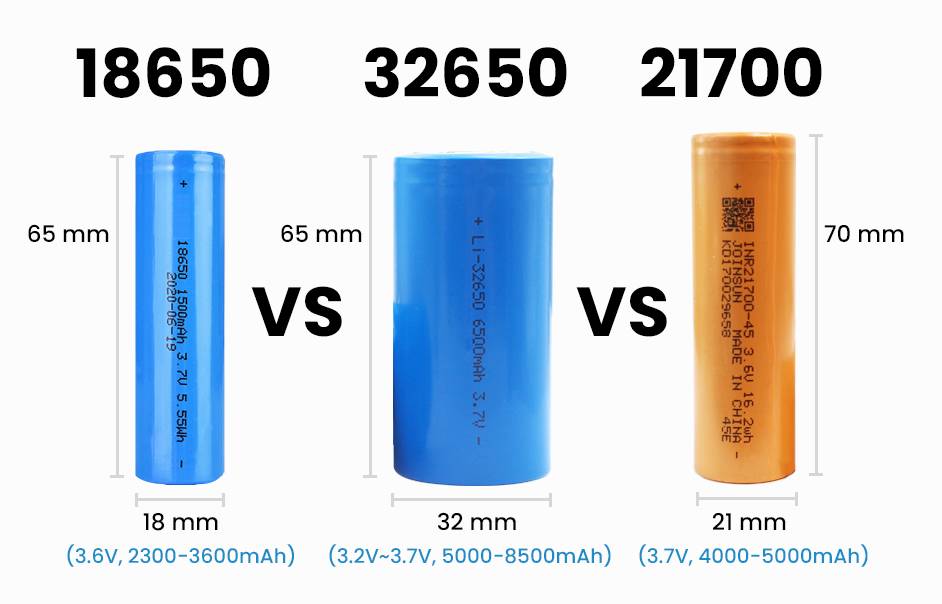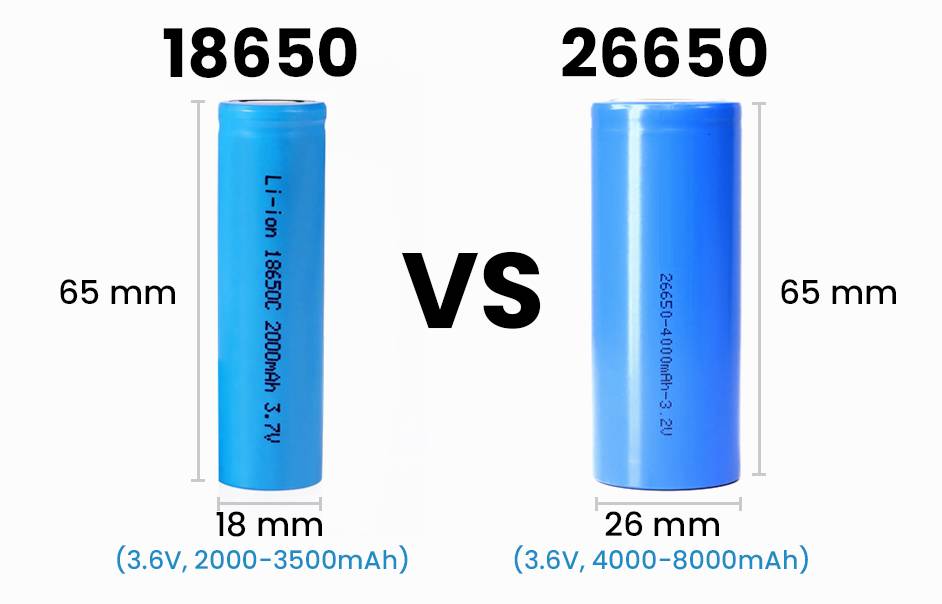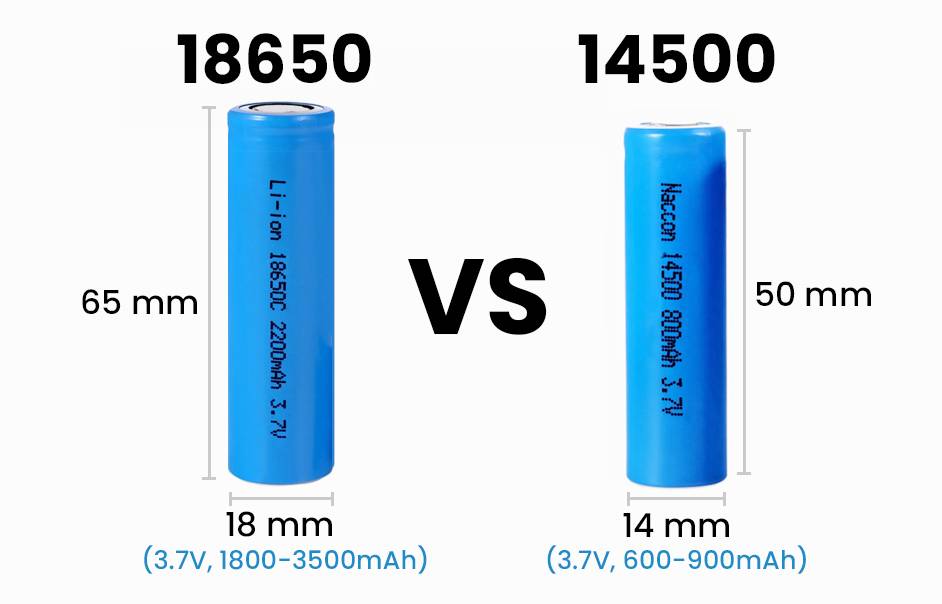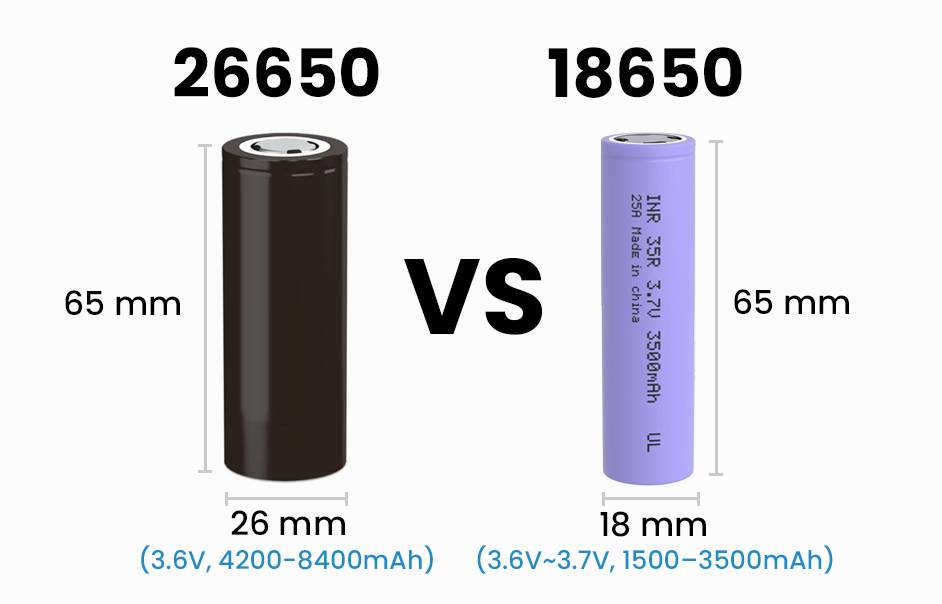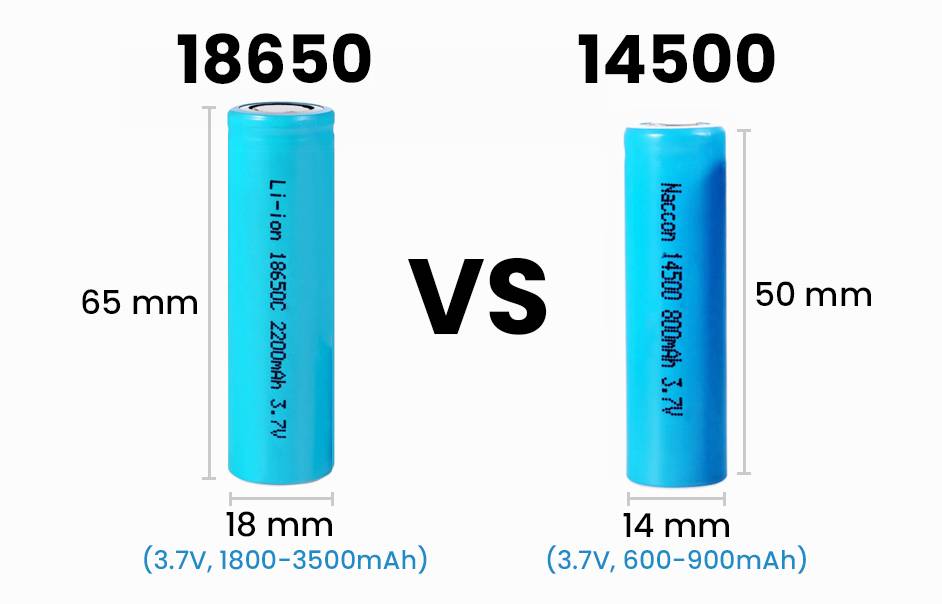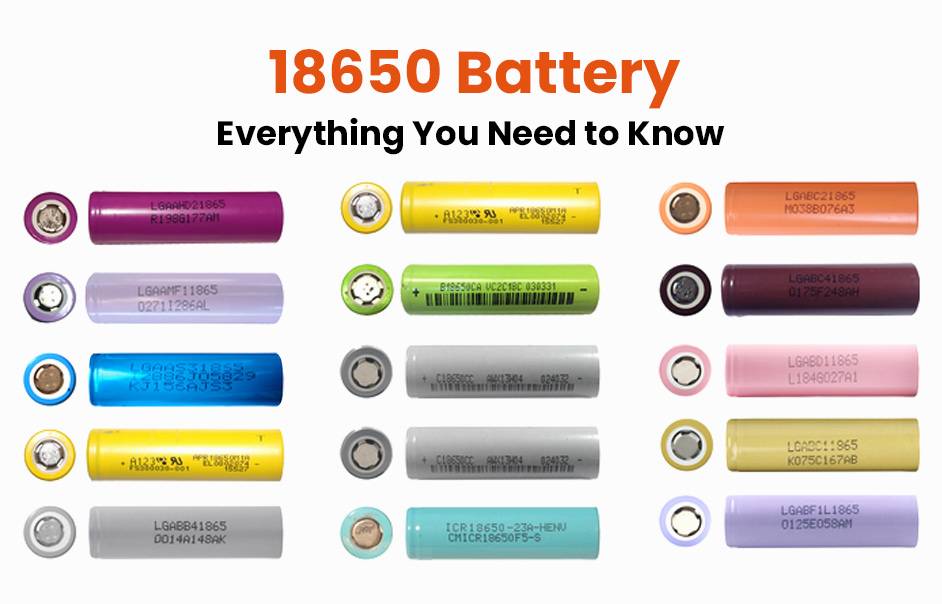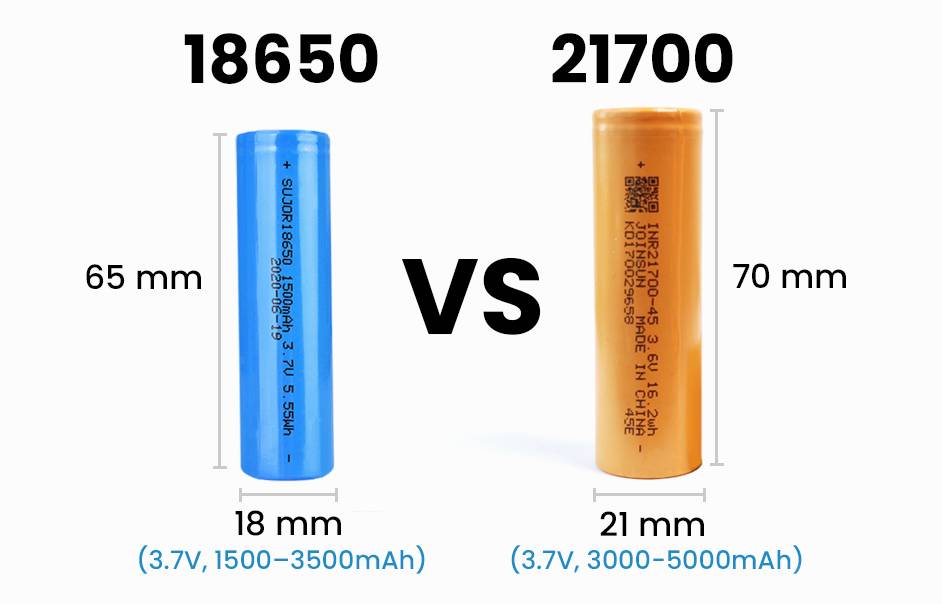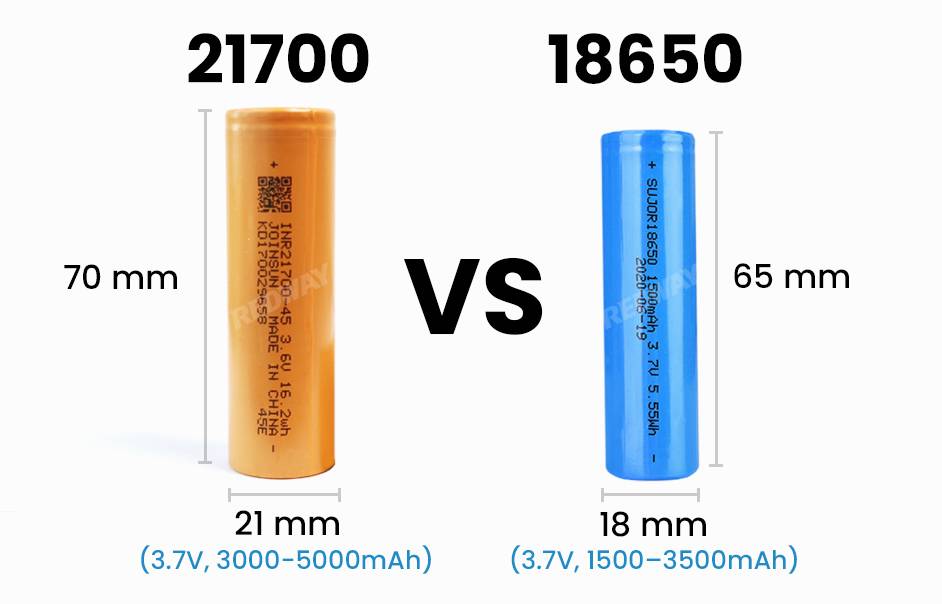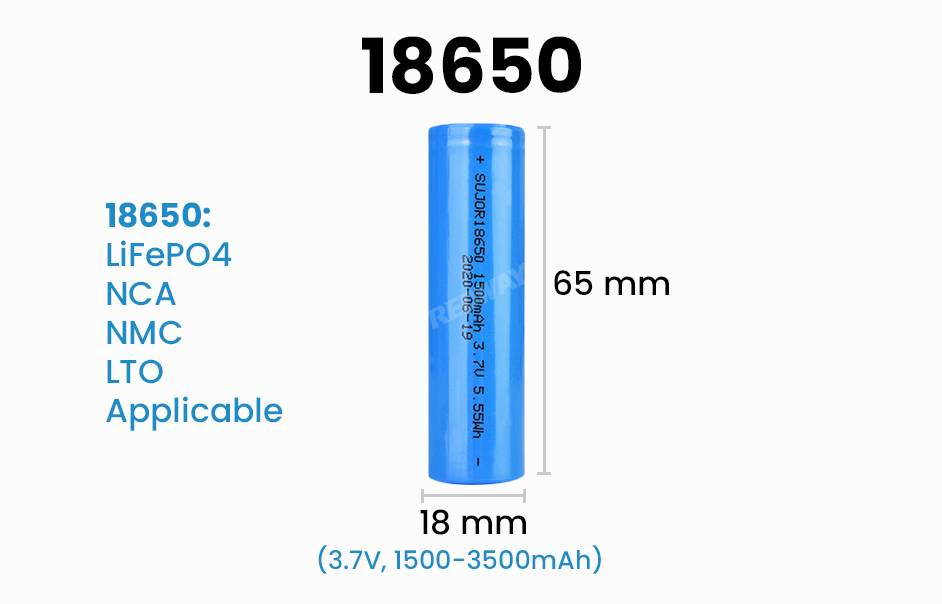- Rack-mounted Lithium Battery
- Golf Cart Lithium Battery
-
Golf Cart Lithium Battery
- 36V 50Ah (for Golf Carts)
- 36V 80Ah (for Golf Carts)
- 36V 100Ah (for Golf Carts)
- 48V 50Ah (for Golf Carts)
- 48V 100Ah (Discharge 100A for Golf Carts)
- 48V 100Ah (Discharge 150A for Golf Carts)
- 48V 100Ah (Discharge 200A for Golf Carts)
- 48V 120Ah (for Golf Carts)
- 48V 150Ah (for Golf Carts)
- 48V 160Ah (Discharge 100A for Golf Carts)
- 48V 160Ah (Discharge 160A for Golf Carts)
-
Golf Cart Lithium Battery
- Forklift Lithium Battery
- 12V Lithium Battery
- 24V Lithium Battery
- 36V Lithium Battery
- 48V Lithium Battery
-
48V LiFePO4 Battery
- 48V 50Ah
- 48V 50Ah (for Golf Carts)
- 48V 60Ah (8D)
- 48V 100Ah (8D)
- 48V 100Ah
- 48V 100Ah (Discharge 100A for Golf Carts)
- 48V 100Ah (Discharge 150A for Golf Carts)
- 48V 100Ah (Discharge 200A for Golf Carts)
- 48V 150Ah (for Golf Carts)
- 48V 160Ah (Discharge 100A for Golf Carts)
- 48V 160Ah (Discharge 160A for Golf Carts)
-
48V LiFePO4 Battery
- 60V Lithium Battery
-
60V LiFePO4 Battery
- 60V 20Ah
- 60V 30Ah
- 60V 50Ah
- 60V 50Ah (Small Size / Side Terminal)
- 60V 100Ah (for Electric Motocycle, Electric Scooter, LSV, AGV)
- 60V 100Ah (for Forklift, AGV, Electric Scooter, Sweeper)
- 60V 150Ah (E-Motocycle / E-Scooter / E-Tricycle / Tour LSV)
- 60V 200Ah (for Forklift, AGV, Electric Scooter, Sweeper)
-
60V LiFePO4 Battery
- 72V~96V Lithium Battery
- E-Bike Battery
- All-in-One Home-ESS
- Wall-mount Battery ESS
-
Home-ESS Lithium Battery PowerWall
- 24V 100Ah 2.4kWh PW24100-S PowerWall
- 48V 50Ah 2.4kWh PW4850-S PowerWall
- 48V 50Ah 2.56kWh PW5150-S PowerWall
- 48V 100Ah 5.12kWh PW51100-F PowerWall (IP65)
- 48V 100Ah 5.12kWh PW51100-S PowerWall
- 48V 100Ah 5.12kWh PW51100-H PowerWall
- 48V 200Ah 10kWh PW51200-H PowerWall
- 48V 300Ah 15kWh PW51300-H PowerWall
PowerWall 51.2V 100Ah LiFePO4 Lithium Battery
Highly popular in Asia and Eastern Europe.
CE Certification | Home-ESS -
Home-ESS Lithium Battery PowerWall
- Portable Power Stations
26650 vs 18650 Lithium Battery, What are the Differences?
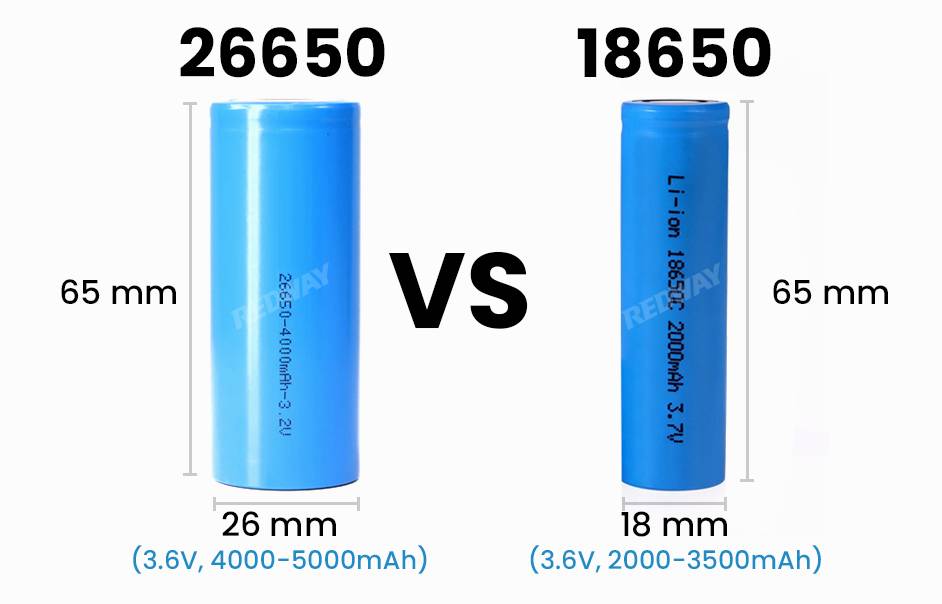
Are you tired of carrying heavy batteries that don’t last? Are lithium battery types confusing? Don’t worry! Today, we’re exploring 26650 and 18650 lithium batteries. We’ll cover their size, capacity, performance, and what sets them apart. So, sit back and get ready to learn all about these batteries!
What is 26650 Battery?
26650 batteries are large rechargeable lithium-ion batteries known for their high capacity and durability. With a diameter of 26mm and a length of 65mm, they’re bigger than other types like 18650. These batteries are used in devices needing long runtimes, like LED flashlights and power tools. They offer safety, efficiency, and a long lifespan of at least 3000 full charge cycles.
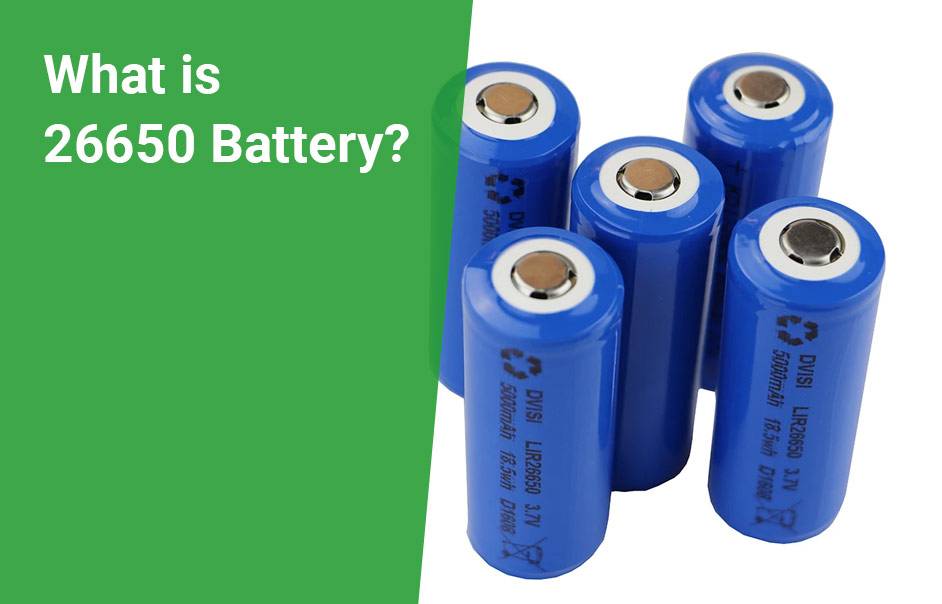
What is 18650 Battery?
An 18650 battery is a common type of rechargeable lithium-ion battery used in electronics. It’s named after its dimensions: 18mm in diameter and 65mm in length. These batteries power laptops, flashlights, and electric vehicles, offering high energy density and a long lifespan of over 3000 charge cycles. They’re reliable and come in variants with added features like button tops or protection circuits.
26650 vs 18650 Battery in size, capacity, and applications
Size
26650: The number “26650” refers to the dimensions of the battery, with a diameter of 26mm and a length of 65mm.
18650: Similarly, “18650” denotes a battery that is 18mm in diameter and 65mm in length.
Voltage
26650: 3.6V
18650: 3.6V~3.7V
Capacity
26650: Generally, 26650 batteries have a larger capacity (around 4000 – 5000mAh) compared to 18650 batteries. They can store more energy, making them suitable for applications that require extended use.
18650: While 18650 batteries have a slightly smaller capacity (about 2000 – 3500mAh), they are still widely used and offer a good balance of size and power.
Applications
26650: Due to their larger size and higher capacity, 26650 batteries are often used in applications that demand more energy, such as high-powered flashlights, electric vehicles, and certain power tools.
18650: These batteries are commonly found in a wide range of devices, including laptops, flashlights, vaping devices, and other portable electronics.
Compatibility
26650: Devices need to be designed to accommodate the larger size of 26650 batteries.
18650: 18650 batteries are more compact and are compatible with a broader range of devices.
Ultimately, the choice between a 26650 and an 18650 battery depends on the specific requirements of the device or application. If a larger capacity is needed and the device can accommodate the size, a 26650 battery might be suitable. For more compact devices with lower power requirements, an 18650 battery could be a better fit.
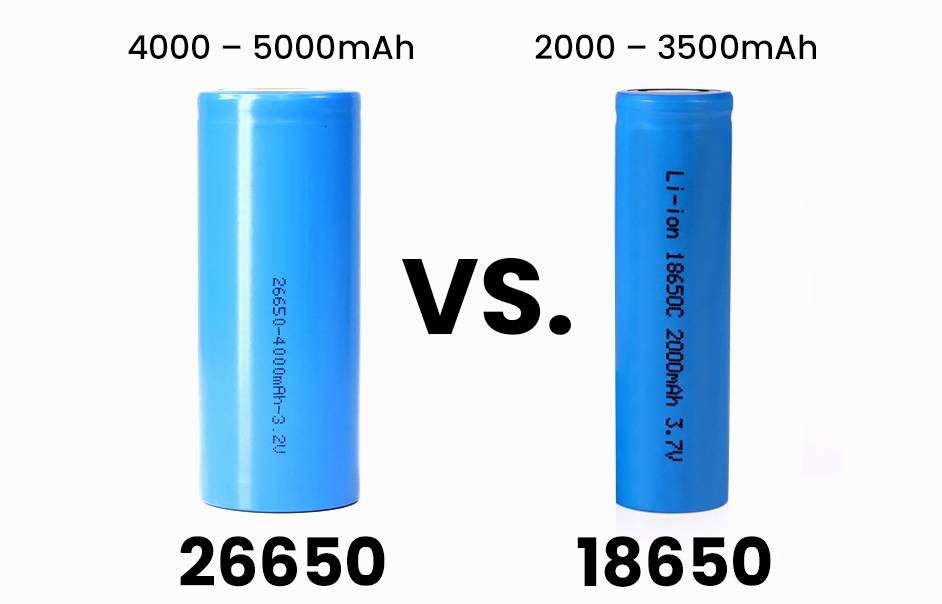
What are some potential disadvantages of 18650 batteries?
What advantage does the 18650 battery have over the 26650 battery?
What advantages does the 26650 battery have over the 18650 battery?
How do the energy capacity and energy density of 26650 and 18650 batteries compare?
Can I mix a 26650 battery with an 18650 battery in the same device?
Are 26650 lithium batteries better than 18650 batteries?
How to Choose the Right Battery? 26650 vs 18650
Deciding between 26650 and 18650 batteries hinges on specific requirements. The 26650 offers more power but is larger, ideal for flashlights and tools. Conversely, the 18650 strikes a balance between size and performance, fitting laptops and power banks. Consider your device size, power demands, and battery availability to make the best choice.
Choosing between 26650 and 18650 batteries depends on your needs:
- Size:
- 26650: Bigger, for devices like flashlights and power tools.
- 18650: Smaller, fits laptops and power banks.
- Capacity:
- 26650: Holds more power for longer use.
- 18650: Good balance of size and performance.
Consider your device size, power needs, and availability before deciding.
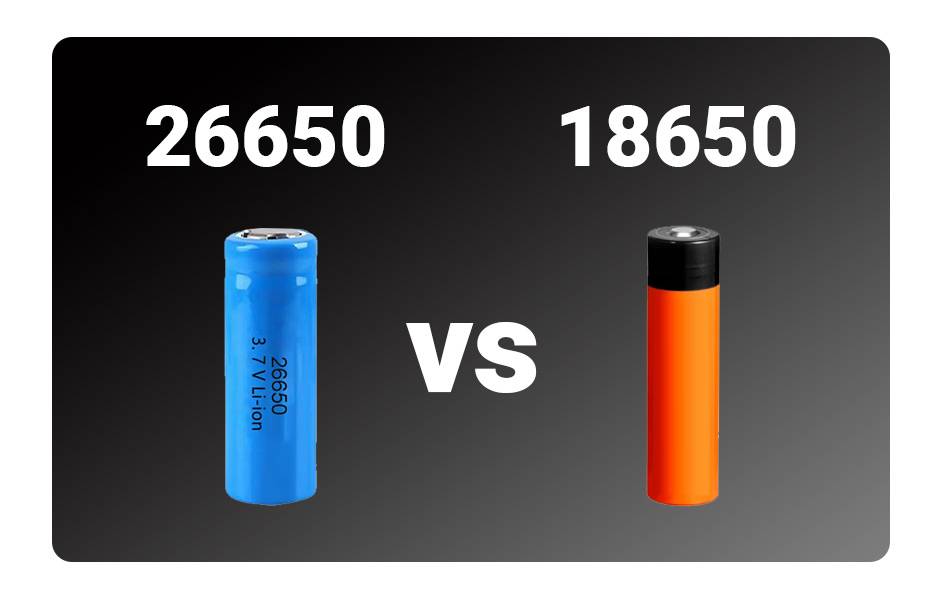 The 18650 battery is by far the most common type of battery used in high-drain devices such as mods and flashlights. They’re also widely used in laptop computers and electric vehicles. 18650 batteries are typically smaller and more lightweight than their 26650 counterparts, making them ideal for use in devices that need to be portable.
The 18650 battery is by far the most common type of battery used in high-drain devices such as mods and flashlights. They’re also widely used in laptop computers and electric vehicles. 18650 batteries are typically smaller and more lightweight than their 26650 counterparts, making them ideal for use in devices that need to be portable.
The 26650 battery is slightly larger and heavier than the 18650, but it offers a higher capacity and therefore longer run-time. This makes them ideal for use in high-powered devices such as box mods, where you need all the power you can get. However, because they are larger and heavier, they’re not as suited to portable devices as the 18650 battery.
So, which one should you choose? It really depends on your needs. If you want a battery that will give you long run-times and plenty of power, go for the 26650. If you need something smaller and lighter that will still give you.
Conclusion
In summary, both 26650 and 18650 lithium batteries come with distinct pros and cons. Choosing between them should depend on your specific application requirements. The higher capacity of the 26650 battery suits applications demanding high power output or extended run-time, whereas the smaller size of the 18650 battery is ideal for more compact designs. When deciding, consider not only capacity and size but also safety features like temperature control and overcharge protection.
In terms of energy density, some advantages of 18650 batteries include their compact size, relatively high energy density, long cycle life, and compatibility with a wide range of devices. One notable characteristic of these batteries is their impressive energy density, which enables them to deliver substantial power output while maintaining a compact form factor. This high energy density feature of 18650 batteries plays a key role in their effectiveness, allowing them to power various devices efficiently and reliably over extended periods of use.
FAQs
Are 26650 batteries better than 18650?
Comparing 26650 and 18650 batteries, it’s about what suits your needs. 26650 packs more power (about 5000mAh) for longer use in high-drain devices. 18650 offers versatility with sizes ranging from 1200mAh to 3600mAh, ideal for various gadgets. Both last longer with proper care. Choose 26650 for power and 18650 for versatility.
What is the use of 26650 battery?
26650 batteries are bigger and hold more power. They’re used in electric cars for longer trips, medical tools for reliability, and gadgets like laptops and phones for lasting energy. Also, they’re popular in strong flashlights for bright light that lasts. Different from smaller batteries, 26650 ones can do more!
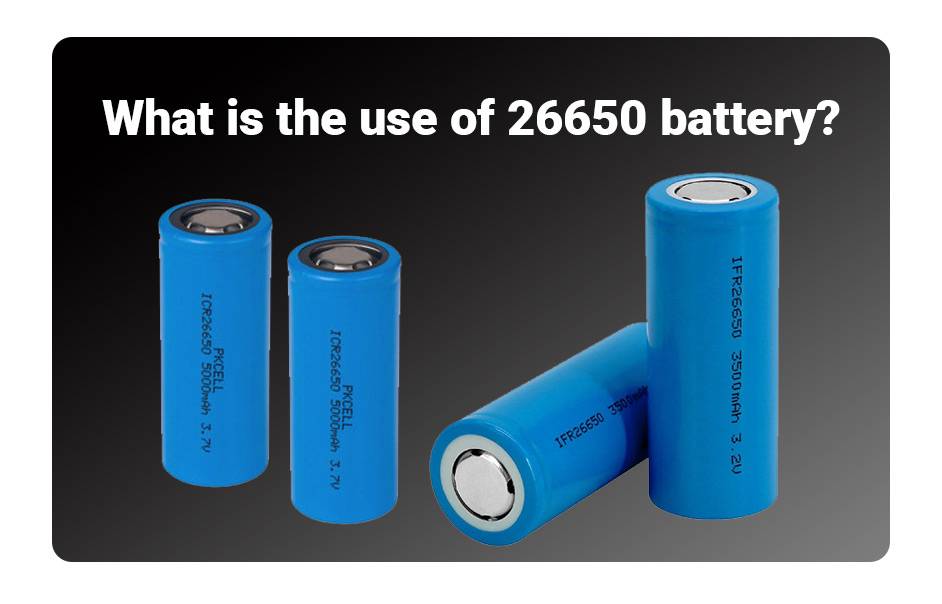
Here’s why it’s so widely used:
1. Big Power for Long Journeys: In electric vehicles, like cars, these batteries provide the energy needed to go on long trips without needing to recharge often.
2. Reliable Help in Hospitals: Medical equipment relies on the 26650 battery to keep running smoothly, ensuring patients get the care they need without interruptions.
3. Longer Lasting Gadgets: Devices we use every day, such as laptops and phones, benefit from the 26650 battery’s ability to hold more power, keeping them going for longer stretches.
From powering cars to powering our gadgets, the 26650 battery is a key player in keeping things running smoothly.
Why are 18650 batteries so popular?
Can I replace 18650 with 26650?
In some cases, yes, you can replace 18650 batteries with 26650 batteries if the device can accommodate the larger size and higher voltage of the 26650 battery. However, it’s essential to check the device’s specifications and compatibility before making the switch.
What is the best protected 26650 battery?
The “best” protected 26650 battery can vary depending on factors such as capacity, brand reputation, and specific requirements of your device. Some popular brands known for high-quality 26650 batteries include Panasonic, LG, Samsung, and Sony.
What is the difference between a 18650 battery and a 26650 battery?
What are the disadvantages of 18650 batteries?
What is the difference between 18650 and 26650 torch?
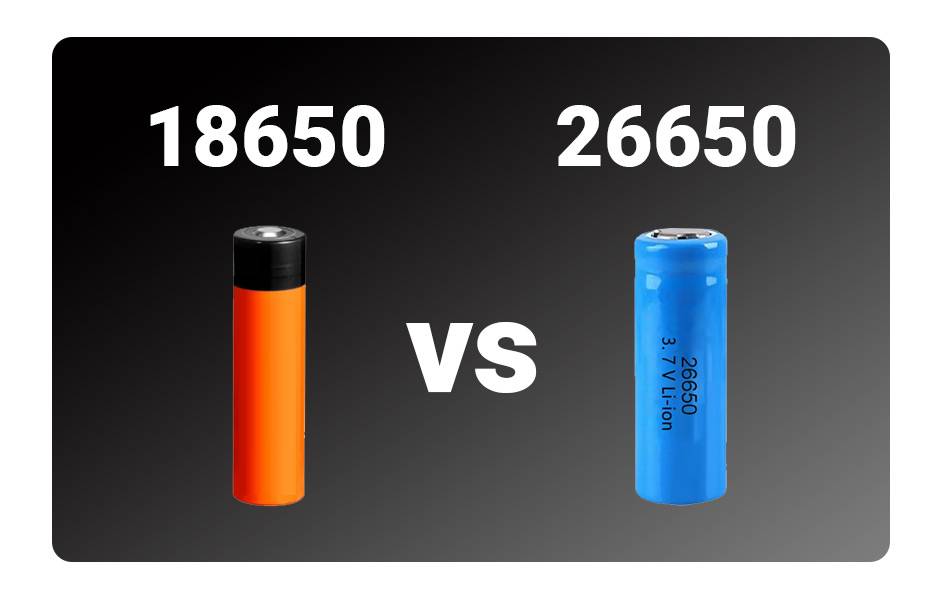
What is so special about 18650 battery?
What are the advantages of 18650 batteries?
What is the full charge voltage of a 26650 battery?
How do the physical dimensions of lithium-ion batteries impact their performance?
What are the advantages of using a 26650 battery in power-hungry devices?
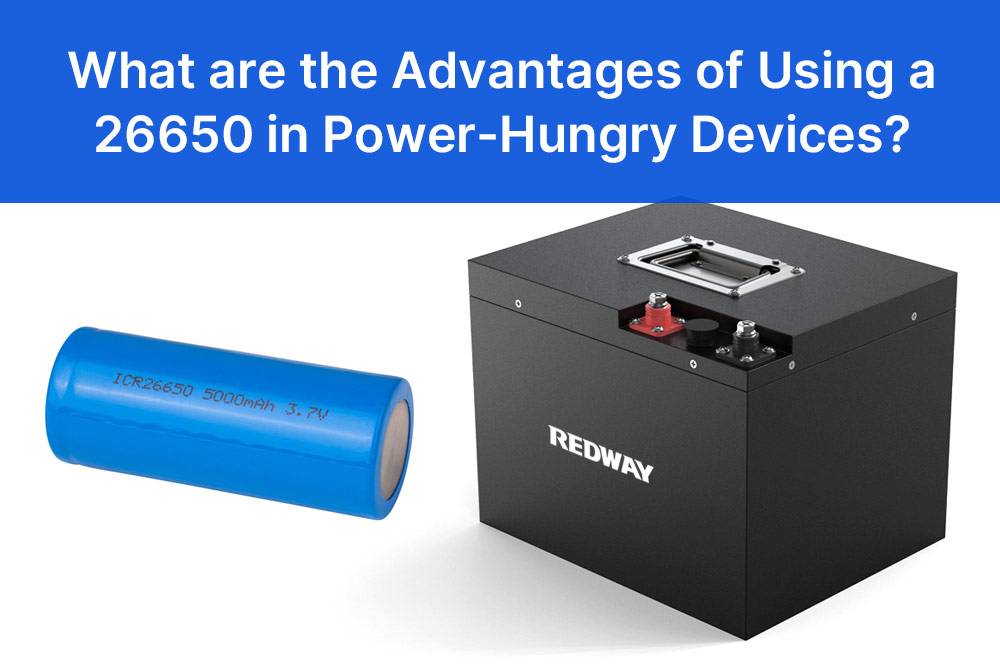
What are the critical factors to consider when comparing 26650 and 18650 batteries?
What are the key differences between 26650 and 18650 batteries?
















